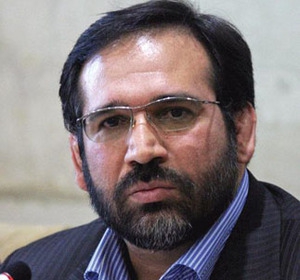Friday 12 October 2012 - 17:27
Story Code : 7505
Iran finance minister: country's FX reserves are in good position
TOKYO, Oct 12 (Reuters) - Iran's foreign exchange reserves are in a "good position", its�finance�minister said on Friday, as the government grapples with a steep decline in its currency and sanctions from Western countries over its nuclear programme.
Shamseddin Hosseini, Iran's minister of economic affairs and finance, told reporters that the government was taking steps to stabilise the currency, such as curbing speculative demand.
In the past two weeks, the rial-dollar exchange rate has emerged as a fault line in Iran's economy as the country resists foreign pressure, denying Western accusations that its nuclear programme is aimed at making weapons.
"We have had to make changes to our currency system after the strengthening of sanctions on our country," Hosseini told reporters at a briefing.
"When it comes to reserves, actually we are in a good position. We are having some problems transferring hard currency, and this is putting pressure on our currency market."
The sanctions have slashed Iran's oil export�earnings�and triggered a rush by Iranians to change their savings into foreign currency, dragging the rial down. Early last week, the rial was trading around 37,500 to the dollar, having lost about a third of its value in 10 days and two-thirds in 15 months.
Hosseini, who is in Tokyo to attend meetings of the International Monetary Fund, called the sanctions an "economic war" and said the country is trying to cope by guaranteeing currency for food, medicine and agricultural supplies.
The slide in the rial is boosting inflation, officially at around 25 percent already, as imported goods become dearer. Last week, riot police clashed near Tehran's Grand Bazaar with crowds protesting against the currency's drop, while Iranian President Mahmoud Ahmadinejad is under fire from parliament for his economic management.
Hosseini told reporters on Friday that the protests were limited and that they did not reflect the will of most Iranians.
Over the last several days, the government has tried to impose its will on the currency market with a combination of threats and persuasion.
The Iranian Money Changers Association, a state-licensed body, recommended its members sell dollars at 28,500 rials - a discount of about one-quarter to last week's free-market rate.
The sanctions are not only hurting Iran, they are also hurting other countries because they increase the price of oil and push up food prices, Hosseini said.
The Iran Project is not responsible for the content of quoted articles.
# Tags











